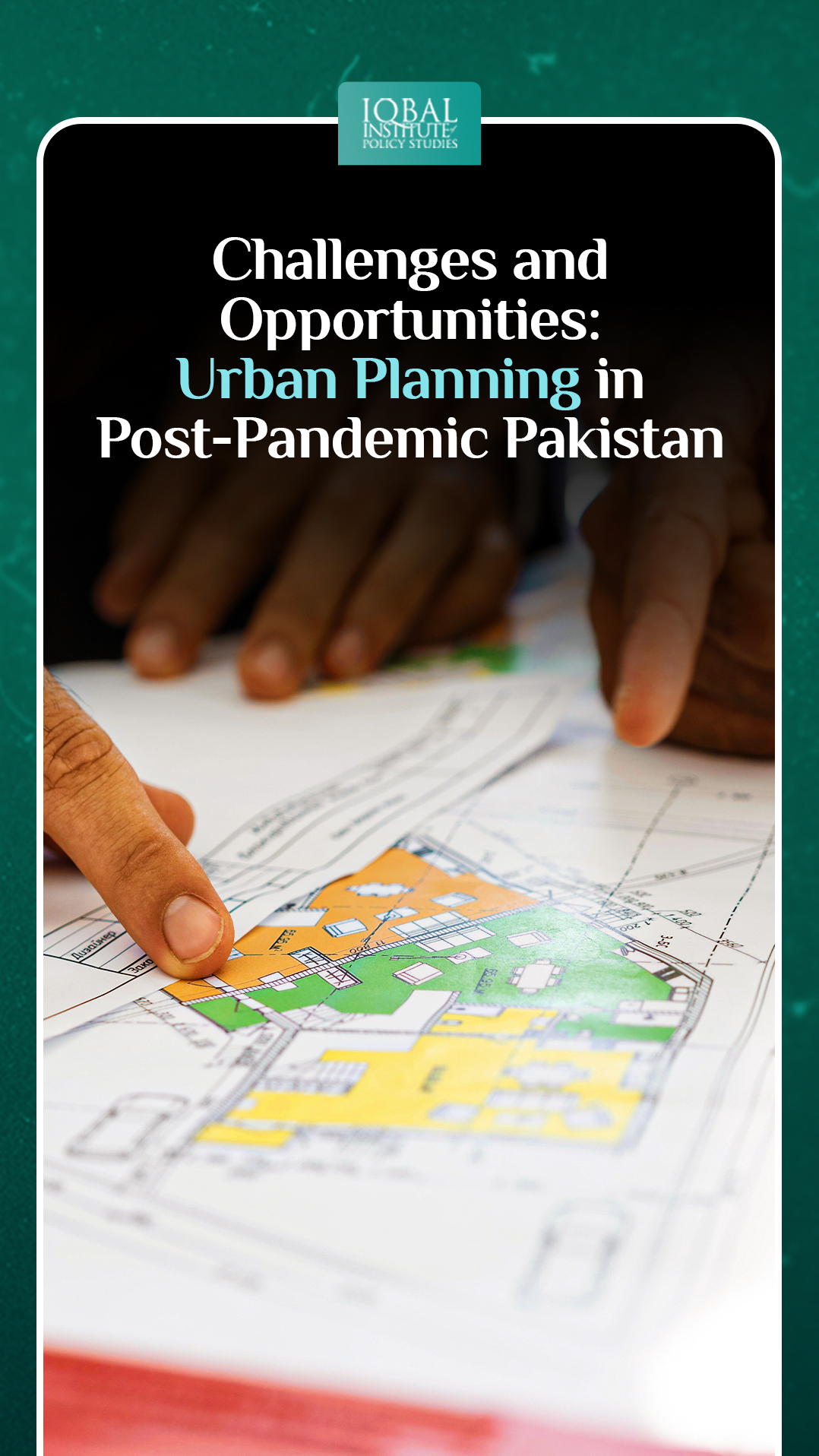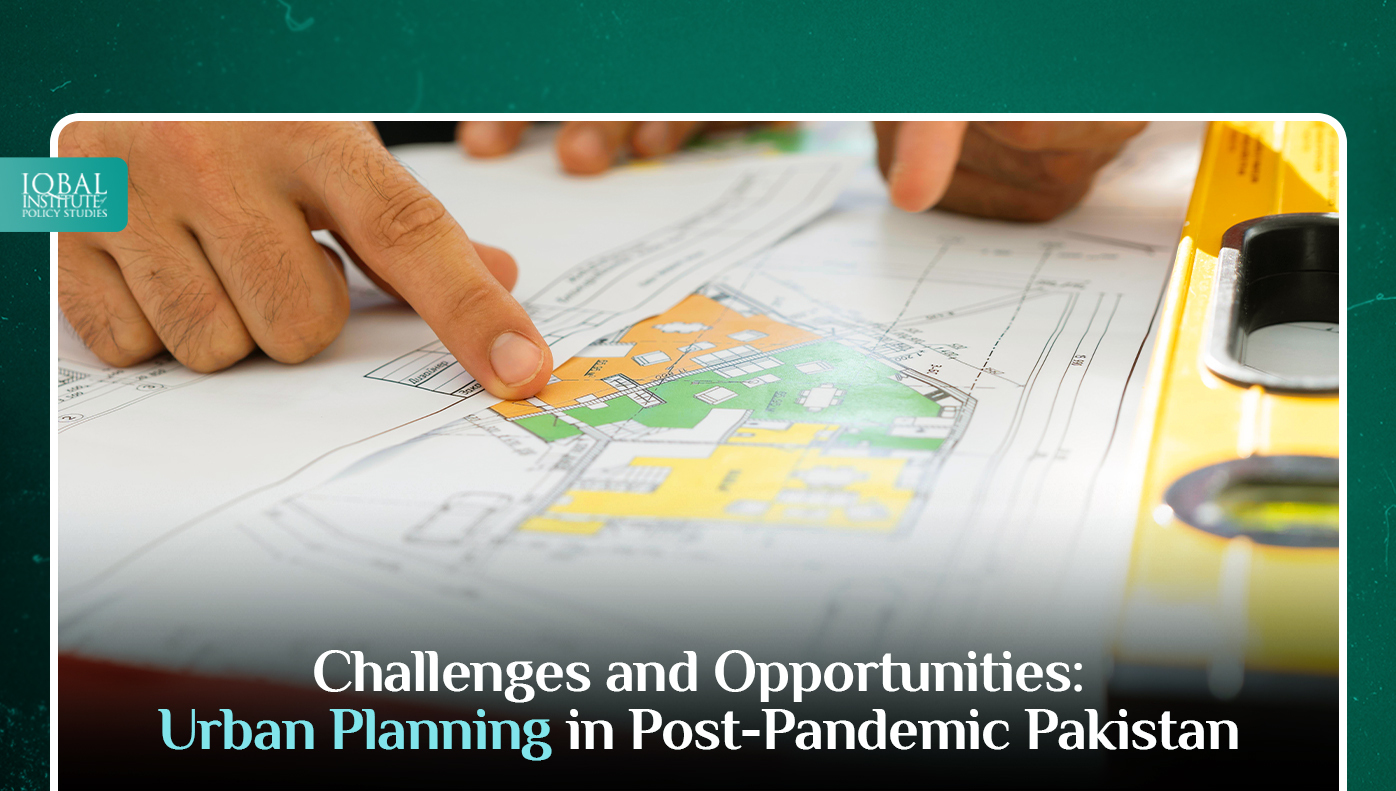The COVID-19 pandemic has left an indelible mark on societies worldwide, amplifying the significance of urban planning in addressing new challenges and opportunities. In Pakistan, where urbanization is on the rise, the pandemic has unveiled vulnerabilities in the existing urban infrastructure. This comprehensive blog explores the multifaceted challenges and promising opportunities that confront urban planning in a post-pandemic Pakistan.
Challenges
Overstretched Healthcare Infrastructure
Pakistan’s healthcare system was stretched to its limits during the pandemic, particularly in urban areas. Hospitals were overwhelmed, and the shortage of critical care facilities became apparent. The pressing challenge is to fortify healthcare infrastructure to better respond to future health crises, ensuring timely access to medical care for all residents.
Overcrowding and the Conundrum of Social Distancing
Urban centers in Pakistan struggled to enforce social distancing, given their dense populations. As an immediate post-pandemic challenge, urban planning must concentrate on strategies for decongesting cities. This entails urban renewal, the creation of open spaces, and the construction of affordable, spacious housing that aligns with social distancing requirements.
Inadequate Sanitation and Hygiene
Access to clean water and sanitation is a fundamental concern in many Pakistani cities. Urban planning must prioritize the expansion and modernization of water supply and sewage systems, coupled with rigorous sanitation education campaigns. By addressing these issues, cities can guard against the spread of diseases in densely populated urban locales.
Informal Settlements and Vulnerable Populations
The pandemic exposed the vulnerability of Pakistan’s informal settlements, where residents live in substandard conditions with limited access to basic amenities. Urban planning should aim to regularize informal settlements, providing improved housing, sanitation facilities, and essential healthcare services.
The Digital Divide
The pandemic accelerated the need for digitalization across sectors, including education, remote work, and telehealth services. Urban planning should incorporate strategies to bridge the digital divide, ensuring equitable access to essential digital services for all residents, regardless of their geographic location.
Environmental Sustainability
The pandemic also drew attention to the need for environmental sustainability in urban planning. As Pakistan’s cities grow, so does the risk of environmental degradation. Urban planners must prioritize green and eco-friendly solutions, from eco-friendly transportation to energy-efficient buildings, to reduce the environmental footprint of urban areas.
Opportunities
Resilient Healthcare Systems
The pandemic presents a critical opportunity to strengthen and modernize healthcare infrastructure in urban areas. Investments in new hospitals, clinics, and telemedicine facilities can bolster cities’ readiness to respond to future health crises.
Mixed-Use Development for Community Resilience
Urban planning can promote mixed-use development, fostering vibrant neighborhoods that combine residential, commercial, and recreational spaces. Such mixed-use environments can reduce the need for extensive travel and enhance community resilience.
Green and Open Spaces for Well-Being
The post-pandemic world offers a unique chance to prioritize green and open spaces within urban areas. These spaces provide residents with much-needed areas for relaxation, exercise, and mental rejuvenation. Simultaneously, they can ease overcrowding issues and elevate overall quality of life.
Affordable Housing Solutions
The pandemic highlighted the importance of adequate and affordable housing. Urban planning can focus on affordable housing solutions that ensure that residents have access to safe, comfortable, and affordable living spaces, addressing Pakistan’s housing shortage issue.
Smart Cities and Digital Transformation
The pandemic’s reliance on digital infrastructure has spurred interest in smart city technologies. Urban planning can integrate these technologies, such as digital healthcare services, online education, and e-governance, to make cities more resilient and efficient.
Community Engagement and Participation
In the post-pandemic landscape, urban planning should prioritize community engagement and participation. This inclusion ensures that development projects align with the needs and preferences of local residents, resulting in more inclusive and responsive urban environments.
Rethinking Transportation and Mobility
With remote work becoming more common, urban planning can reevaluate transportation and mobility options. Investments in public transportation, cycling infrastructure, and pedestrian-friendly streets can reduce congestion, promote sustainable commuting, and lessen environmental impact.
Conclusion
The COVID-19 pandemic has functioned as a stark reminder of the challenges and opportunities inherent in Pakistan’s urban planning landscape. The challenges are multifaceted, encompassing healthcare infrastructure, overcrowding, sanitation, digital disparities, and environmental sustainability. However, these challenges are also opportunities to reimagine and revitalize urban development in a post-pandemic Pakistan.
By addressing these challenges and leveraging the potential opportunities, urban planning can contribute to the creation of more resilient, sustainable, and inclusive cities. As we forge ahead, urban planning in Pakistan should not only assimilate the lessons learned from the pandemic but also embrace innovation, community engagement, and a forward-looking approach. This comprehensive transformation of urban planning can lay the foundation for a brighter, healthier, and more prosperous urban future for Pakistan.
This article is written by Radma Noman. Radma is a research analyst at the Iqbal Institute of Policy Studies (IIPS).



Leave a Reply